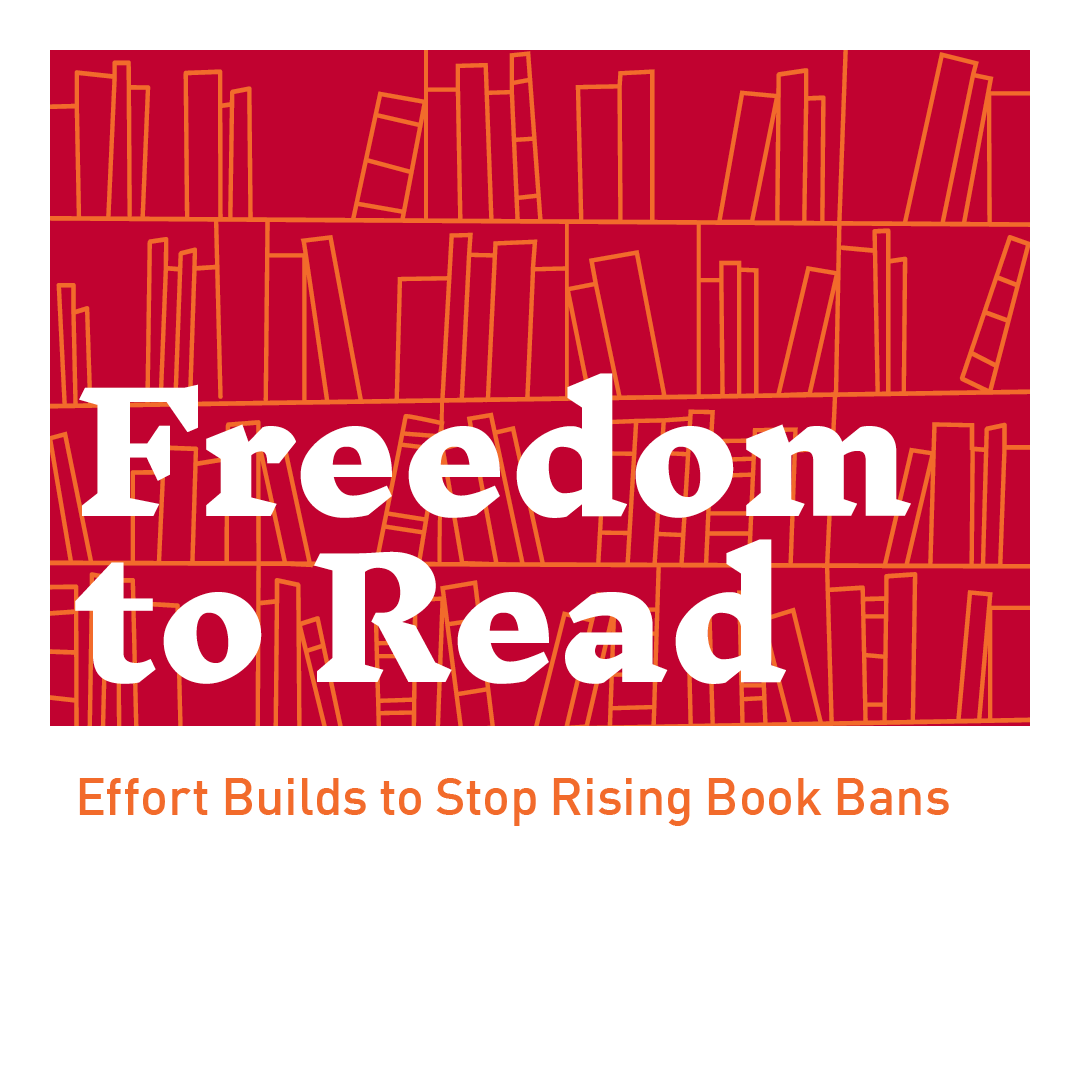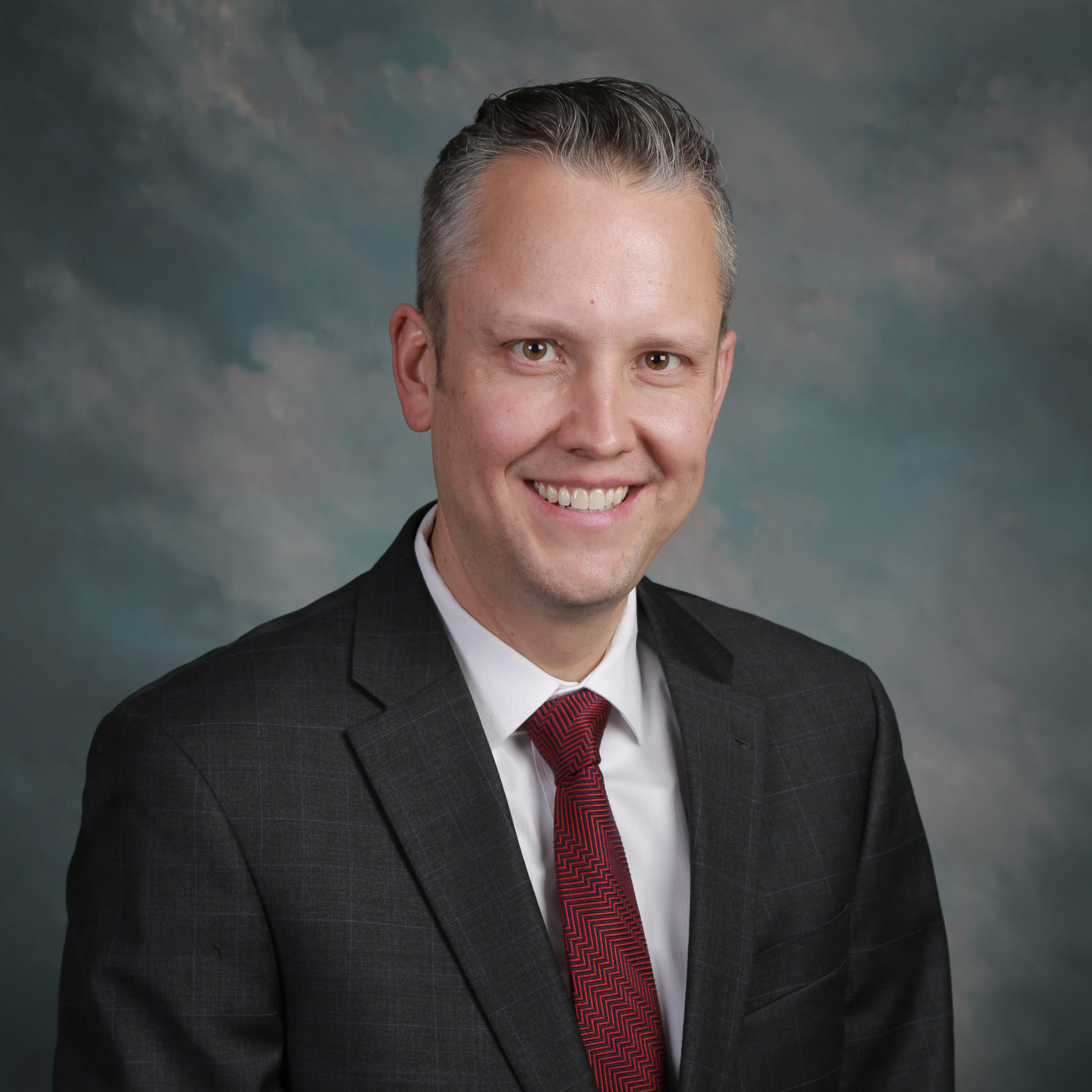Educators and Parents Battle Book Bans: ‘That is not who we are, and our children deserve better’

Part 1 of our 5-part “Freedom to Read” series
By Brenda Ortega, MEA Voice Editor
Michigan Education Association
Four years after wrapping up a distinguished teaching career, MEA-Retired member Gayle Martin stepped up to the podium to speak at a recent school board meeting in Rochester, where she has lived and taught for more than three decades.
Martin had never publicly raised her voice so unreservedly on a topic of controversy, but she felt compelled to enter the arena after witnessing ongoing, angry calls by a vocal minority to ban certain books from school libraries in the Oakland County community she calls home.
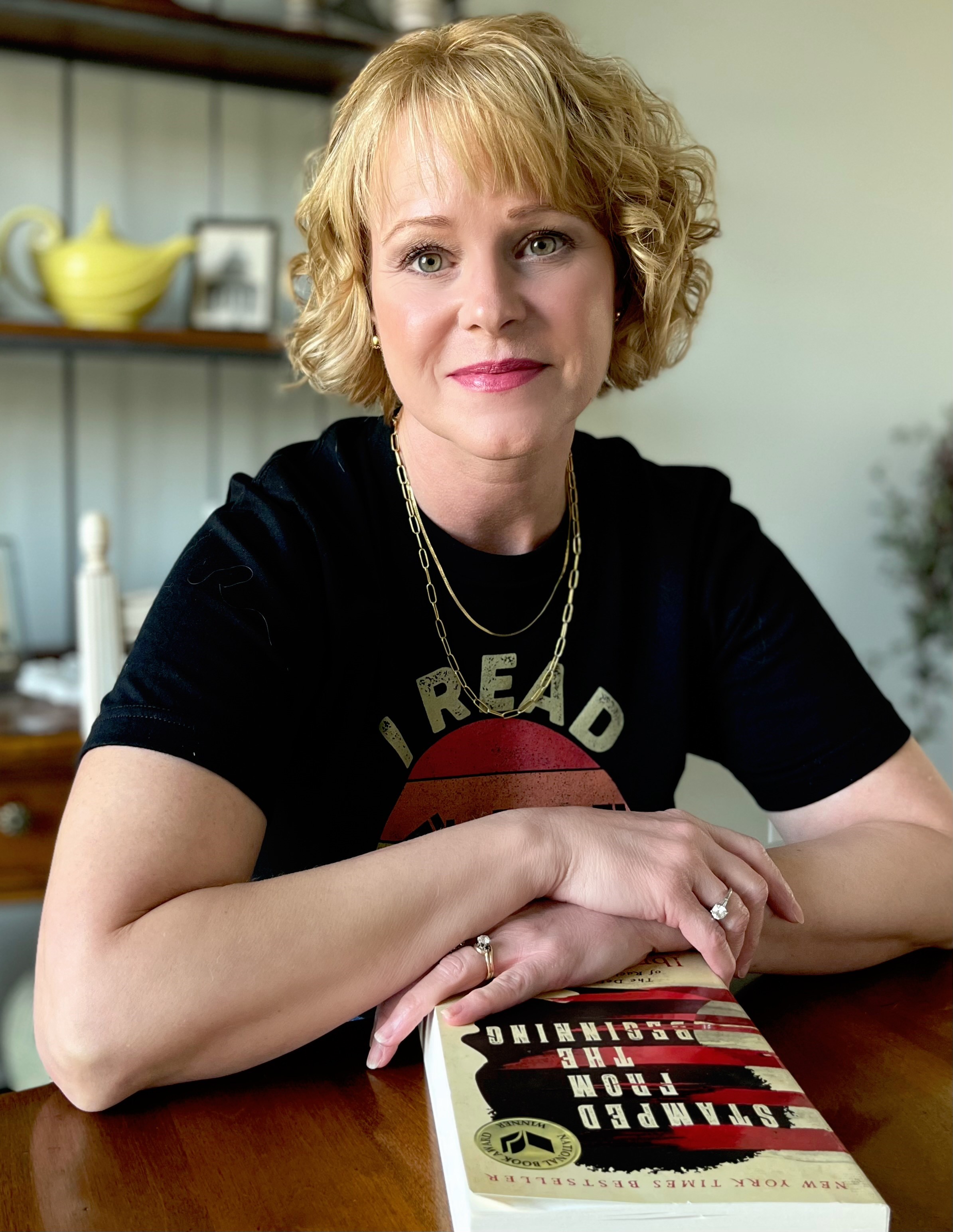
Focusing on passages and excerpts rather than whole works of literature, the critics have called the books “obscene” and accused educators of being “pedophiles” and “grooming” students amid contentious debate over the issue.
Martin decided she could not sit by as the small but loud contingent returned to one board meeting after another, threatening Rochester students’ freedom to read literature from diverse viewpoints—just one flash point among a troubling rise in book challenges happening in Michigan and across the U.S.
During only three months of the current school year, from September through November, more than 330 book bans were reported to the American Library Association’s (ALA) Office for Intellectual Freedom – each of which could involve multiple titles – the highest number since the organization began tracking censorship in the 1990s.
“This is an attack against our students and their First Amendment rights, against our educators, and against our public school system,” Martin told the board before launching into a powerful lesson on state and federal court precedents related to book challenges and school censorship.
Martin carried the message with the heft of an accomplished English teacher, former department chair, and award-winning high school newspaper advisor, concluding with a clear-eyed assessment of her opponents’ false narratives.
For one, the would-be censors claim the issue is one of “parental rights,” but parents already have the right to opt their children out of reading any book – “even if it is assigned, which these are not,” she noted.
“The second false narrative is that schools are trying to ‘indoctrinate’ students,” she testified. “But again – no one is making kids read these books, and indoctrination doesn’t happen by osmosis. In fact, the first step to indoctrination isn’t providing access to ideas. It is eliminating access to ideas.
“These false narratives imply – whether intentionally or not – that our educators are unprofessional or even criminal. They imply that our high school students are so lacking in critical thinking skills that they cannot make their own choices. Worst of all, they imply that any children who may see themselves in these books are not welcome and not safe in our public schools.
“That is not who we are,” she concluded in her narrative, “and our children deserve better.”
Martin stepped away from the microphone to loud cheers and applause, but much of the work she is doing to fight back remains behind-the-scenes and unheralded.
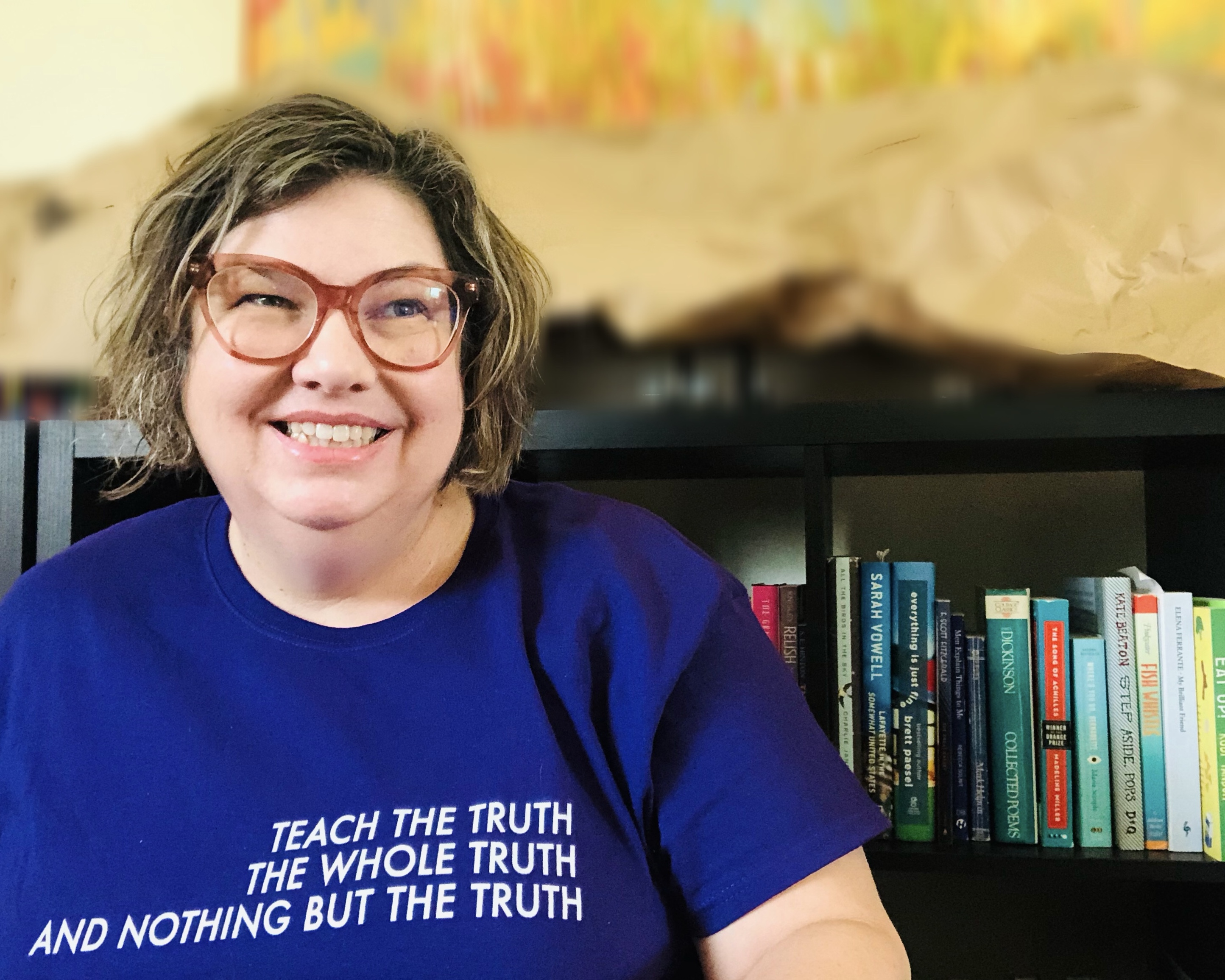
This spring she joined with Emily Sommer, a former Rochester teaching colleague and fellow MEA-Retired member, to formally organize supportive parents and other community members into a group known as Free to Read Rochester.
Martin’s graphic designer daughter created digital materials for the group, social media accounts were started, and the pair tapped into networks – both locally and nationally – of other parent and community activism groups for connection, ideas and training.
They estimated Free to Read Rochester’s membership at nearly 200 parents, educators and community members a few weeks into the effort.
The group held a “Read-In” before the April 26 school board meeting in which a few dozen people turned out to read frequently targeted books in the lobby of the high school auditorium where the meeting was relocated to accommodate the crowd. Some also later addressed the board.
Sommer, the group’s co-leader, taught English in Rochester for 20 years before retiring last June and admitted in an interview, “I’m a very quiet person. I am pretty shy. I don’t like to open myself to criticism, so part of me was like, I don’t know if I’m the right person to do this.”
She is motivated to action by her convictions as both an educator and parent, Sommer says. Her son is a sophomore in the district, so she spoke to the board from that perspective after noting – again – that all parents have the right to opt-out their own kids from reading particular books.
“I’m totally on board with parents speaking up for their own kids; they know their needs and values,” she testified. “But very clearly their values are not mine, and they don’t have the right to tell my son he can’t check out a book that they don’t like.”
Next in her three-minute remarks Sommer challenged the district administration’s decision to remove the challenged books while a review and decision are pending, which goes against policies recommended by the ALA to guard against the dangers of censorship.
“I’m grateful the district has designed a review process that includes people who are experts in youth literature and child development and that looks at these texts as a whole,” she said. “That process, however, should include leaving books available to children until a final decision has been reached.
“Removing books in circulation while they’re being evaluated is a really easy way to deny students access to books with even the most frivolous challenges.”
“Soft censorship” – or departures from best practices for evaluating challenged books – constitutes the majority of a staggering 1,586 instances of individual books being banned in a recent national report covering nine months from July 1, 2021, to March 31, 2022.
The alarming trend was documented in an April report, “Banned in the USA: Rising School Book Bans Threaten Free Expression and Students’ First Amendment Rights,” by PEN America, a non-profit association of writers and writing professionals defending free expression as a human right for 100 years.
“This report confirms that these bans are overwhelmingly happening in districts where school authorities are not following best practice guidelines to protect students’ First Amendment rights, often making opaque or ad hoc decisions, in some cases in direct contravention of existing policies.”
The scale and force of book banning is escalating dramatically and targeted at specific types of books by or about individuals in marginalized communities, such as racial, ethnic and religious minorities and members of LGBTQ communities, according to PEN.
“In recent years PEN America has typically encountered a handful of such cases each year. The findings in this report demonstrate a profound increase in both the number of books banned and the intense focus on books that relate to communities of color and LGBTQ+ subjects over the past nine months.”
Sommer concluded her testimony by addressing those points from the broader perspective of an educator who understands the myriad needs of a diverse student population.
“One of the roles of our school libraries is as a refuge,” she said. “It’s a safe place in the building for kids who don’t feel seen or comfortable, who are marginalized or from underrepresented groups, and the books that have been targeted here in our community and all across the country by book banners everywhere are books about these kids or by adults who were these kids.
“They’re mostly books about gay, trans, minority characters, books about surviving oppression or abuse. What message are we as a district sending when we tell students the stories about people like them are not welcome or that they’re dangerous to other students?”
Martin and Sommer initially got involved by soliciting community donations of books that had been removed from library shelves in Rochester. The goal at first was simply to make the titles available to individual teachers who could ensure access for students who needed it.
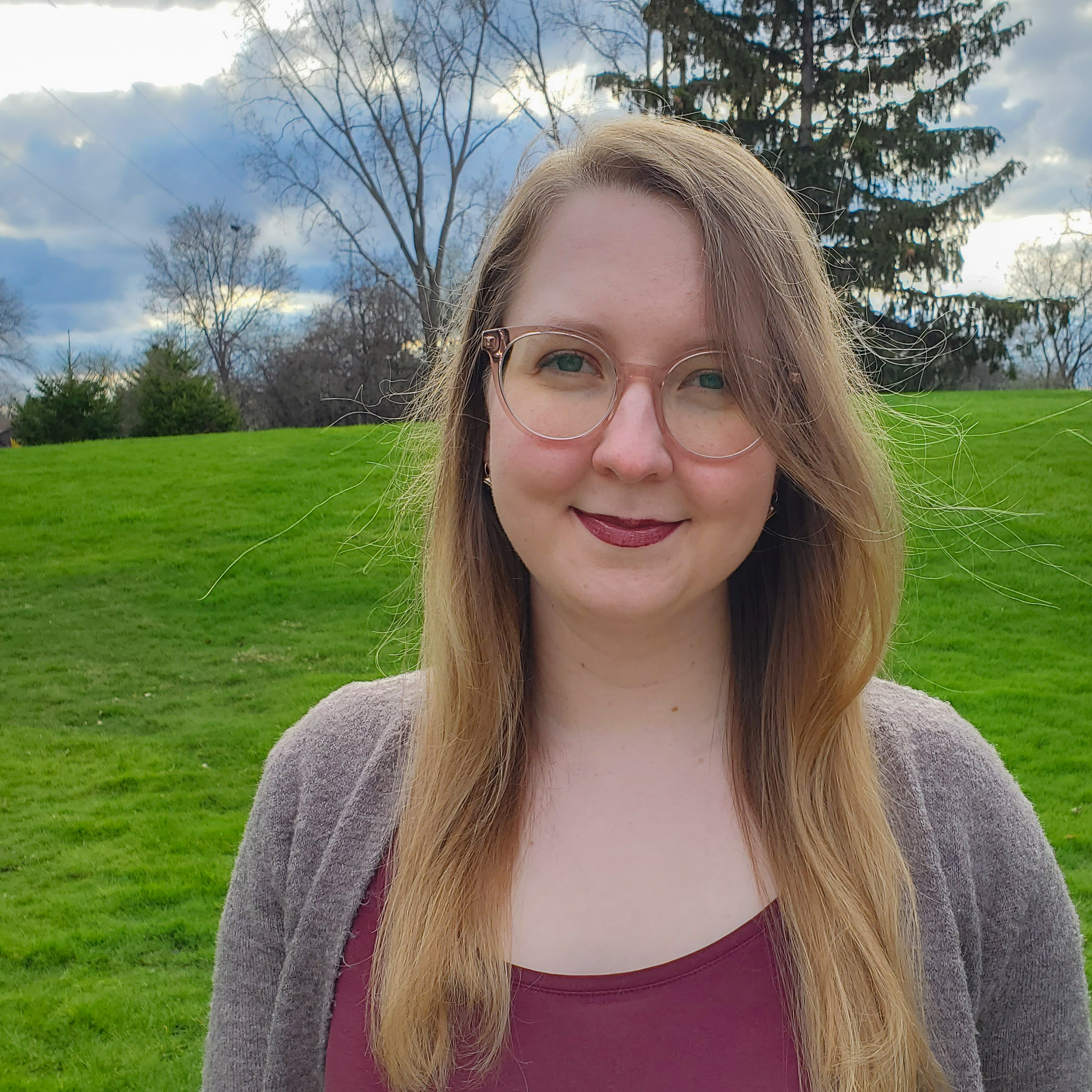
However, it was a former student who inspired them to take on a greater role. Victoria Phelps, a 2014 graduate of Rochester’s Stoney Creek High School, showed the way by consolidating all of the information about what is happening into a cogent public Facebook post that drew attention.
“Gayle and I probably would’ve stayed very much within our social circles if not for Tori,” Sommer said in a joint interview. “She’s brave, and she’s passionate, and she reached out to other community groups and a larger network of young people, and it really grabbed hold.”
The retirees realized they could do more to support fellow educators who feel under attack from the frequent anger directed at school board meetings, which began a year ago across the U.S. around mask mandates and has since shifted aim toward limiting history lessons on race; quashing efforts to improve diversity, equity and inclusion; and now censoring of books.
“In a lot of ways we can be proxies for our friends and colleagues who are still in the classroom and more vulnerable than we are,” Sommer said.
For example, at one point the opposition group shared a video on YouTube attacking a probationary teacher who had been secretly recorded by a student, “so teachers definitely feel like they have a target on their back,” Martin agreed. “Many are afraid to speak out, so that’s why I’m doing it.”
Before she saw her high school teachers posting about it locally on social media, Phelps was aware of rising book challenges nationwide because she is pursuing a master’s degree in library and information science via an online program through Valdosta State University in Georgia.
The 25-year-old earned a bachelor’s degree in English literature at Saginaw Valley State University and recently returned to Rochester to complete her graduate studies. In high school, Phelps was editor-in-chief of the school newspaper under Martin’s direction, and she took a 20th Century Literature class with Sommer.
To understand what was happening in her hometown, Phelps attended a school board meeting in March alongside her fiance.
“I’ve been a journalist longer than I’ve done anything else, thanks to high school and college newspaper experience, so I felt the need to do a lot of research before I developed an opinion on anything,” Phelps said in an interview.
She came away from the meeting concerned about a few things: the level of anger which at times felt “intimidating,” the one-sided message the board was receiving, and the reduction of rich literary works to mere passages quoted out of context and labeled as “pornography” and “indoctrination” by people she wasn’t sure had even read the books.
In response Phelps posted on Facebook the titles of books removed from the district’s high school media centers, ALA information about book bans, and ways for people with other viewpoints to make themselves heard. She cited sources and linked to the district’s video of the meeting.
The challenged titles include The Glass Castle by Jeannette Walls; All Boys Aren’t Blue by George Johnson; Check, Please by Ngozi Ukazu; Fun Home by Alison Bechler; Flamer by Mike Curato; and The Handmaid’s Tale graphic novel by Margaret Atwood.
“The anger in that room for hours on end was simultaneously hair-raising and exhausting,” she wrote in the post. “Some of the issues named are potentially fruitful dialogues for our community to have if we can maintain mutual respect. However, we have no room for censorship or hate in Rochester.”
When opponents commented on her post, Phelps patiently discussed detailed rationales for ensuring student access to books, the importance of considering written works as a whole and not only excerpts, and the legal limits and dangers of book bans, including linked citations.
She noted the Supreme Court recognized students’ First Amendment right to access information and ideas via school libraries. In a 1982 case, Board of Education Island Trees Union School District v. Pico, the court ruled: “Our Constitution does not permit the official suppression of ideas.”
The court went on to say, “[L]ocal school boards may not remove books from school library shelves simply because they dislike the ideas contained in those books and seek by their removal to prescribe what shall be orthodox in politics, nationalism, religion, or other matters of opinion.”
In addition, Phelps pointed to data from ALA polling conducted in early March which showed large majorities of Americans oppose efforts to remove books from school libraries that some people find offensive and remain confident in librarians to make good judgments about library collections.
Across political party lines, after hearing arguments from both sides, 71% of respondents said they oppose book removals from school libraries, and 79% said libraries in their community do a good job of offering books that represent a variety of viewpoints.
Beyond the Facebook comments section, Phelps said she heard from many people privately – including school staff – who felt uncomfortable speaking up but appreciated her advocacy, “so I feel good about saying something,” she said.


